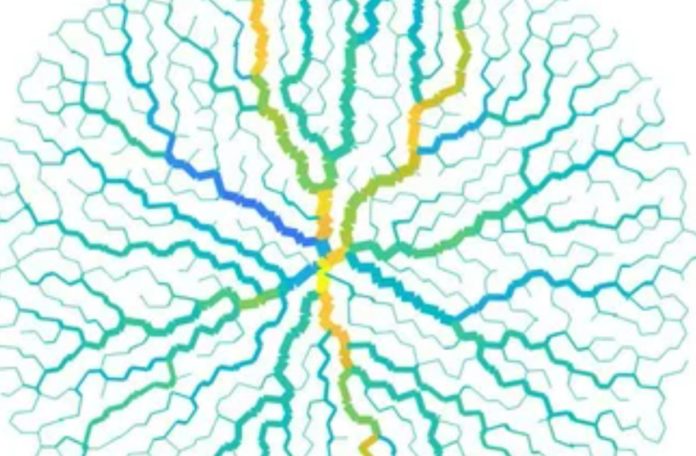This is the main finding of a recent study conducted by scientists from the Technical University of Munich and the Max Planck Institute for Dynamics and Self-Organization in Göttingen.
Networks develop a kind of memory as they change over time.
This is the main finding of a recent study conducted by scientists from the Technical University of Munich and the Max Planck Institute for Dynamics and Self-Organization in Göttingen.
They demonstrate that the blood vascular network’s structure is dynamic and can adjust to external forces.
The scientists discovered that rarely used links are deteriorating and eventually disappearing.
Our body’s vascular system ensures efficient transport by supplying a continuous flow of nutrients, hormones, and other resources.
The ability of such a network to adapt and alter over time was examined by researchers Karen Alim, David Zwicker, and Komal Bhattacharyya.
They modeled the network and determined the connections’ adaption principles using computer simulations.
According to Karen Alim, the study’s corresponding author, “the strength of a connection within a network depends on the local flow.”
This means that linkages with low flows below a particular threshold will deteriorate over time until they eventually disappear, she explains.
This process provides a sophisticated method of streamlining the circulatory system since the amount of biological material needed to construct the vascular system is restricted and should be used in an efficient manner.
Network changes are permanent
Once a link has become severely weakened due to a low flow rate, it is extremely challenging to recover it.
The blockage of a blood vessel, which in the worst scenario could potentially result in a stroke, is a common illustration of this.
Due to the restriction of blood flow, some blood vessels in a specific area of the brain become exceedingly weak during a stroke.
“We found that in such a case,” explains Komal Bhattacharyya, principal author of the study, “adaptations in the network are permanent and are maintained after the obstacle is removed.”
She adds: “One can say that the network prefers to reroute the flow through existing stronger connections instead of re-growing weaker connections — even if the flow would require the opposite.”
With this new knowledge about network memory, the researchers can now explain why blood flow changes even after the clot have been removed.
This ability of networks to remember things can also be found in other living things. For example, the slime mold Physarum polycephalum uses food stimuli to imprint its environment on its adaptive network, which it then uses to find its way around.
Image Credit: Getty
You were reading: It Seems Better To Avoid Blood Clot in First Place – Here’s What Happens After That
